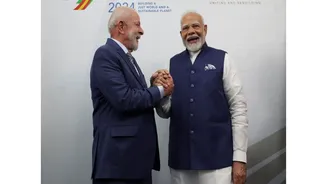EV Mandate Pause
The Canadian government's decision to postpone the enforcement of its electric vehicle (EV) mandate represents a significant shift in its environmental
policy. This postponement, although not explicitly stated as a direct consequence of specific tariffs, demonstrates the complex interplay between trade, economics, and environmental goals. This delay provides the nation with an opportunity to assess the economic landscape and evaluate the impact of ongoing trade disagreements, especially those involving the United States. The mandate was designed to encourage the shift towards electric vehicles, but the government is now reassessing its timing and implementation to minimize any potential adverse economic consequences. The aim is to balance environmental objectives with economic stability during a period marked by uncertainty in global trade relations.
Tariff's Economic Impact
The principal context for Canada’s policy adjustment lies in the ongoing trade disputes, notably the imposition of tariffs. These tariffs, particularly those associated with the United States, have considerable economic ramifications. They impact trade flows, affect business investments, and create instability within the automotive industry. The delay in the EV mandate is likely a calculated move designed to shield the Canadian economy from some of these immediate effects. By delaying the mandate, the government may intend to mitigate the impact on vehicle prices, consumer choice, and the overall economic ecosystem. This approach allows Canada to better respond to external economic pressures. The nation can thus maneuver more effectively in the face of tariff-related economic challenges, thereby safeguarding its economic interests during uncertain times.
Strategic Implementation Timing
The timing of any policy is key. The Canadian government's decision to delay the EV mandate can also be understood as a strategic initiative. It demonstrates a willingness to align policy with economic realities and global trade conditions. The timing adjustment allows the government to fine-tune the implementation strategy. This may involve further consultations with the automotive industry, reviewing market readiness, and assessing potential effects of the trade dynamics. This offers an opportunity for a more measured and effective rollout. The government may also assess the effectiveness of incentives and infrastructure development. This phased approach reduces the chances of any immediate disruptions in the auto sector and gives Canada a stronger position to meet its environmental objectives while upholding economic stability.
Future Trajectory Analysis
The postponement signifies a significant shift that warrants ongoing assessment. The trajectory of the EV mandate will depend on evolving economic conditions and the resolution of trade disagreements. The government is likely to closely monitor the negotiation outcomes with international partners. They will be keeping an eye on changes in the automotive industry and analyzing the broader economic environment. The ongoing evaluation would also affect the pace of the implementation and provide opportunities for making adjustments to the policy. This approach enables the government to adapt effectively and promote the sustainable adoption of electric vehicles in a way that is both economically viable and aligned with their global environmental commitments. By adopting a flexible approach, Canada is positioning itself to effectively balance its economic and environmental objectives.















